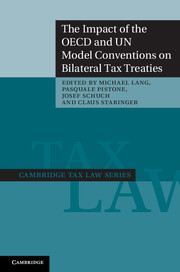Book contents
- Frontmatter
- Contents
- Contributors
- Preface
- Table of cases
- Table of statutes
- General report
- 1 Argentina
- 2 Australia
- 3 Austria
- 4 Belgium
- 5 Brazil
- 6 Canada
- 7 Chile
- 8 China
- 9 Colombia
- 10 Croatia
- 11 The Czech Republic
- 12 Estonia
- 13 Finland
- 14 France
- 15 Germany
- 16 Hong Kong
- 17 Hungary
- 18 India
- 19 Italy
- 20 Lebanon
- 21 Liechtenstein
- 22 The Netherlands
- 23 New Zealand
- 24 Norway
- 25 Peru
- 26 Poland
- 27 Portugal
- 28 Romania
- 29 The Russian Federation
- 30 Serbia
- 31 Slovakia
- 32 Slovenia
- 33 Spain
- 34 Sweden
- 35 Uganda
- 36 The UK
- 37 The USA
- Index
35 - Uganda
Published online by Cambridge University Press: 05 November 2014
- Frontmatter
- Contents
- Contributors
- Preface
- Table of cases
- Table of statutes
- General report
- 1 Argentina
- 2 Australia
- 3 Austria
- 4 Belgium
- 5 Brazil
- 6 Canada
- 7 Chile
- 8 China
- 9 Colombia
- 10 Croatia
- 11 The Czech Republic
- 12 Estonia
- 13 Finland
- 14 France
- 15 Germany
- 16 Hong Kong
- 17 Hungary
- 18 India
- 19 Italy
- 20 Lebanon
- 21 Liechtenstein
- 22 The Netherlands
- 23 New Zealand
- 24 Norway
- 25 Peru
- 26 Poland
- 27 Portugal
- 28 Romania
- 29 The Russian Federation
- 30 Serbia
- 31 Slovakia
- 32 Slovenia
- 33 Spain
- 34 Sweden
- 35 Uganda
- 36 The UK
- 37 The USA
- Index
Summary
The relevance of the OECD and UN Model Conventions and their Commentaries for the interpretation of Ugandan tax treaties
Uganda has concluded nine tax treaties. Its tax treaty partners are Denmark, India, Italy, Mauritius, the Netherlands, Norway, South Africa, the UK and Zambia. It has also negotiated two tax treaties which are not yet in force: the treaty with Belgium and the tripartite treaty between and among Kenya, Tanzania and Uganda.
There is generally no case law, administrative practice or scholarly opinion on the relevance of the OECD Model Tax Convention on Income and on Capital (OECD Model) and the United Nations Model Double Taxation Convention between Developed and Developing Countries (UN Model) and their Commentaries for the interpretation of the bilateral tax treaties concluded by Uganda.
According to Ugandan law, the Ugandan courts are not obligated to defer to precedents and commentaries that are not pronounced by courts of record in Uganda. However, if the commentaries are made by tax experts, such commentaries would be considered persuasive. In the absence of overriding policy concerns, the Ugandan courts would be inclined to follow these commentaries when interpreting bilateral tax treaties concluded byUganda. Such an approach was adopted by the High Court of Kenya at Nairobi in the case of Unilever Kenya Ltd v. Commissioner of Income Tax, where the court held that in the absence of legal provisions to the contrary or specific guidance from Kenya Revenue Authority on a particular issue, it was prepared to refer to the OECD principles on income and on capital and the relevant guidelines.
- Type
- Chapter
- Information
- Publisher: Cambridge University PressPrint publication year: 2012
- 6
- Cited by

